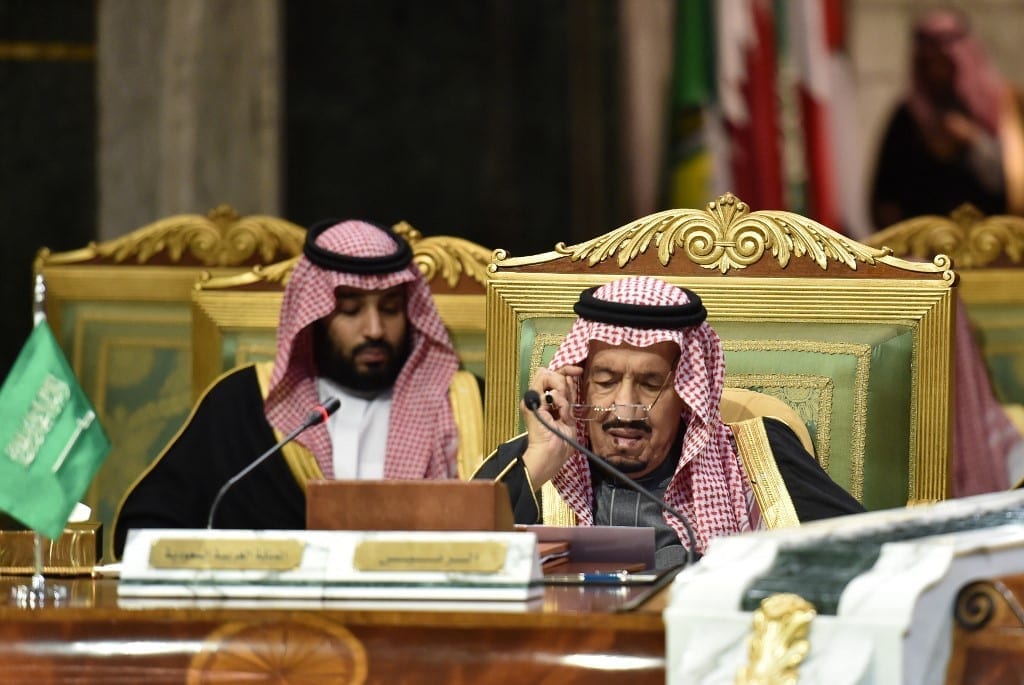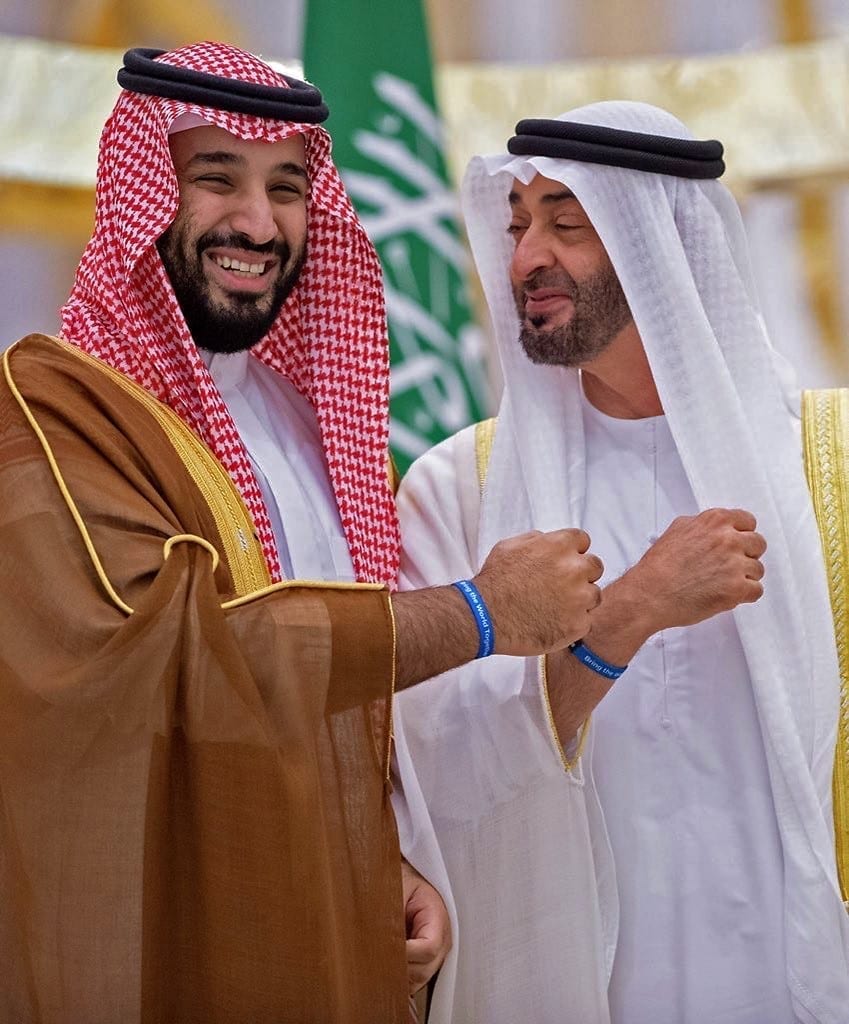Arising from the shock of the news about the UAE’s normalization with Israel, attention has shifted to a critical Arab question: Who is the next Arab country to take the same step?
The Kingdom of Bahrain has come up as the first Arab country that observers expect to follow suit in line with its great neighbor, the Emirates, as it seems that Bahrain’s political positions swing under Saudi Arabian and Emirati influence, not differing much in terms of foreign policy. This is indeed what happened, and the agreement was signed in Washington amid US celebrations and lots of media fuss in the countries that signed what they called, the “Abraham Agreement”. Many considered this signature as “ink on paper”, one with no place actually being implemented on the ground, given that US President Donald Trump’s announcement and interest in the agreement can be understood to simply be a victory for his upcoming administration in the presidential elections, as well as incentive for other critical countries in the Middle East region, such as Saudi Arabia. Regardless, this doesn’t diminish the significance of these actions, to normalize relations with Israel in the rest of the Arab countries. At present, there is talk of the State of Kuwait being next in line in this pattern, after US media outlets reported the Trump is expecting Kuwait to be the third country to follow suit; Still, all eyes are looking towards Saudi Arabia at the moment, in anticipation for their next move.

Saudi Arabia, which has played a key role in the Palestinian cause over the past few decades, seems to be locked in an intense internal debate about the possibility of starting a new and different page in this context. A report by the “Wall Street Journal” has indicated that the Saudi King Salman Bin Abdulaziz and his son, Crown Prince Mohammed bin Salman, are in disagreement on closing a peace agreement with Israel. The report also indicated that King Salman was surprised at the UAE’s normalization with Israel, as he was the one known for his hardline stances in defending the Palestinian cause over the past few years, and in his emphasis on declaring Saudi Arabia’s unceasing position in support of Palestinian rights.
Yesterday’s allies in Yemen, that is, Saudi Arabia, are today alone in the North, after the UAE got what it wanted from the South. A peace agreement with Saudi Arabia’s historical enemy, Israel, without Saudi’s overt blessing, is an example of the UAE’s capability to others to achieve its interests. It did so with a Saudi alliance “on paper” to achieve its “national” goals, as a regional policeman, in exchange for Saudi dreams that seek to achieve the same goal.
This controversial dispute, which appears to be the first between the king and his son since King Salman took power in Saudi Arabia at the beginning of 2015, gives rise to many speculations and questions about the way the country had been managed during the past five years. The Saudi monarch’s surprise at the UAE and Bahrain’s signing of the “Abraham” agreement only serves to increase suspicions that Saudi Arabia doesn’t seem to know it’s allies well enough. This ally, was one that participated in a war with Saudi Arabia in Yemen, aiding it in Yemen’s south, and supporting it in it’s bloodshed on the northern Yemeni border. Is the King also not aware that Saudi Arabia had opened its airspace for Israel to cross into UAE territory, and that the current talks between the UAE and Israel to establish an oil pipeline between the two countries would require it to pass through Saudi Arabia? It seems as though the Saudi monarch also has no idea that the UAE was able, during the years of his rule, to withdraw a large part of Saudi hegemony in the region, that it is now supervising the inclusion of Sudan in the normalization process, and finally that, with these steps, it has place Saudi Arabia in an incredibly unenviable position.


The UAE pushed Saudi Arabia to the fore to exclude Qatar from the political scene in the region, creating a major crisis and divisions in the Gulf arena. They did so under the pretext that Doha had extended its arms in the Middle East region in an “Islamist” context, with Turkish support, without coordinating this with other Gulf countries. According to this storyline, Qatar had come to play a pioneering role in the political and strategic fate of the region, all according to its own agenda, not to the rest of the Gulf countries’ interests. This resulted in the neutralization of Saudi’s historical role with its political and economic powers, alongside the UAE’s goal with its economic power during the late King Abdullah bin Abdulaziz’s rule.
Today, the UAE is playing the same game, as it seems that this loophole in Saudi rule has become apparent to the other countries in the region, through which the UAE was able to neutralize Qatar and replace its Islamist agenda with a pragmatic one, one with a “secular” veneer (albeit in a formal way); this allows for it to not believe in permanent alliances or rivalries. Yesterday’s allies in Yemen, that is, Saudi Arabia, are today alone in the North, after the UAE got what it wanted from the South. A peace agreement with Saudi Arabia’s historical enemy, Israel, without Saudi’s overt blessing, is an example of the UAE’s capability to others to achieve its interests. It did so with a Saudi alliance “on paper” to achieve its “national” goals, as a regional policeman, in exchange for Saudi dreams that seek to achieve the same goal.
All the above proves that Saudi Arabia’s normalization with Israel today is a matter that is far from optional, and that the country may be the arm that Trump and US policy can shape with ease.
However, the matter may not seem surprising to the Saudis, no matter how loud the voices denouncing the agreement are internally, as during the past few years warning signs have emerged regarding preparations for normalization of relations with Israel, and some expected at that time that this step would constitute the accession of the Saudi crown prince to the royal seat. This is because the news had previously covered the arrest of Palestinian residents in Saudi Arabia, who are still suffering in Saudi prisons at this moment. Another example is that of the arrests in April 2019 of a group of Saudi men and women, known for being “pan-Arabs”, very close in proximity to this normalization decision. Finally, there was also the Saudi government’s seizing of land in the Northern Saudi border, and their demolishing of the homes of the residents who had lived there for decades, in a very ‘Israeli’ fashion, under the excuse that they were working on the “NEOM” project, the same project which could open a road to Eilat in Israel!
All of this has happened under the infamous justifications of “getting rid of corruption” and “addressing the breaches of security in the country”, all under the rule of King Salman bin Abdulaziz. All of this is happening today for the sake of the Abraham Agreement, the formal paper agreement that is primarily aimed at achieving the interests of Israel, as well as to develop the marginal Emirati role in the region.






